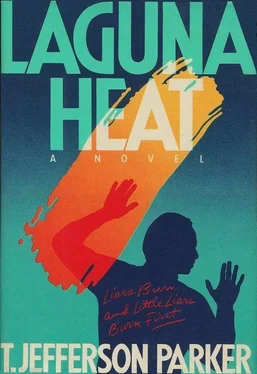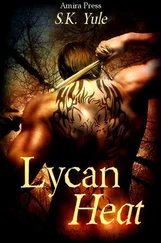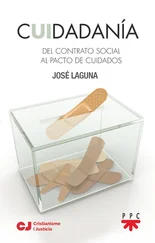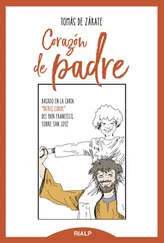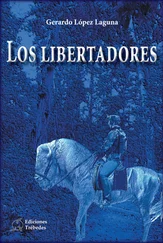As he thought of Louise, he felt bad.
Those early years had seemed endless, he thought, setting the plates and a coffee saucer into the familiar sink. They had seemed endless, and then they vanished.
Wade filled the sink and began washing the dishes, and in automatic response to the years of teamwork that had made the Shephard house spotless, Tom took his time-honored position to his father’s left. He dried. The view through the kitchen window was pristine. A bank of clouds wandered across the sun, casting a momentary darkness over the day and turning the shiny water to a dark blue. Cobalt blue, Shephard noted, like the flecks in Larry Robbins’s microscope. He worked the Identikit sketch from his pocket and flattened it on the counter beside his father. Wade studied it, shook his head, looked again. “No.”
“Did you know Tim Algernon?” Shephard asked.
Wade handed him a plate and nodded. “Hard to live in this town for thirty years and not know Tim. We played a little tennis together at the Surfside back after the war. Never friends, just acquaintances.” His father’s voice suddenly found an edge. “I heard it was pretty bad.” He looked again at the sketch, then moved it aside.
“He didn’t have a face. We had to run a dental on him just to make the identification.”
Shephard purposefully offered his father little information; Wade’s line of questioning would reveal his own instincts on how to handle the case. There was a long silence as Wade rinsed the sink and doused it with cleanser. Then, as he had done a hundred times before, he wiped the counter once before swinging himself up onto the tiles, where he sat with his back to the ocean. Shephard dried the last of the silverware and hoisted himself likewise onto the opposite counter. His father’s face had lost its warmth.
“Money?”
“That was my first thought. Until I found over a thousand dollars in bills stuffed down his throat. There was more in the house, and plenty of hardware someone might want.” Shephard waited again.
“Then what does that leave?”
Shephard looked into the face of Wade the Cop. “An old detective friend of mine told me once that men get killed for four reasons. Money, a woman, silence, and revenge. Algernon didn’t have a woman.”
Wade seemed to ponder the statement. Then: “Now do you understand why that old detective left that world for a better one?”
“I think so. But there must be silence and revenge in your world, too.”
His father grinned broadly. “We try to keep it to a minimum.”
“Algernon was killed early Monday morning. On Wednesday, Hope Creeley had a visit from the same man. He held her down in the bathtub and cut off her eyelids before torching her, and everything—”
“Cut off her eyelids?”
“The only way I can figure it is that he wanted her to watch,” Shephard said.
His father shook his head. “I guess that’s how I’d read it too,” he said quietly.
“And the same guy did it. He sent Algernon a Bible with a threat written in it. The same for Creeley. The woman at Forest Avenue Books said the Identikit sketch matched her customer. She had him pegged for religion or self-help.”
“An astute observation, I’d say.”
“The connection between Algernon and Creeley is the Surfside Club. They were members at the same time, but it was a long time ago—”
“One connection, maybe,” Wade interrupted. “I hope for your sake there’s more than just that.”
“It’s all I’ve got. Maybe Joe Datilla can open some doors.”
Wade’s face seemed torn between professions: the suspicion of the detective and the gentle disappointment of the reverend both registered. “Joe will do everything he can for you,” he said, and for a moment was lost in thought. “I can’t think of two more opposite types. Algernon, as I remember, was a quiet man, big and strong, an athlete. Hope Creeley was married to Burton Creeley, who was part-owner of the club. She was a vivacious, very social woman before he died. Of course after that, she just seemed to fade away. I’m sure that living there at the Surfside was more than she could handle.”
“You knew about Helene?”
“Everyone knew about Helene Lang.”
“What happened to her?”
Wade looked down at his feet as they dangled by the cupboard. “Like Hope Creeley,” he answered finally. “She just seemed to fade away. Left the club after a while, I think.”
“Where did she go?”
“I don’t know, Tom. I quit going there after your mother passed away and it was quite a while before I had the desire to play tennis with the old gang again. So I lost touch. Just as well, I think. I’ll tell you, after the war I came back from the Pacific, glad to be alive with a little peace in the world. A year or two later I met Colleen and I don’t have to tell you that that was the happiest time of my life. The whole world seemed to breathe a big sigh of relief. People moved west to Southern California; the factories that were building planes went back to building station wagons, and it was wonderful. A whole country full of teenagers is what it felt like. Then a long run of, well, call it bad luck if you want. A strange feeling it was, sitting in the Surfside Lounge after Colleen and Burton. I guess the dream had to end. It felt like... growing up, maybe. It sobered us. It aged us. It woke us up from a good sleep.” Wade reached down and wiped the counter once with the towel. “It’s still a hard time to talk about,” he added as he slid off the counter and checked his watch.
“Thanks, pops,” Shephard said.
“Hey.” When he looked up, his face was full and flushed, a dose of the Reverend Wade Shephard. “I’ve got a couple of young lovers to marry. And when you’re ready, I’ll do it for you, too.” He smiled broadly. “No charge.”
Shephard sped north on Coast Highway toward the Surfside Club, helping himself to the vacant fast lane and holding the Mustang to a mild eighty. An afternoon breeze had eased onto the coast, the first stirrings of a shift from low to high pressure. By evening the wind would hit seven knots, he guessed, frosting the sea with whitecaps and clearing the smog westward for a high-gloss sunset. He pictured himself sitting on the patio of the Hotel Laguna, working on a double Scotch in the company of Jane Algernon
while the sun went down behind Catalina Island. Unlikely daydreams, he thought. But as Jane Algernon’s sleeping figure passed across his mind he again felt that fluttering inside, the covey of quail gathering before flight. He savored the brief sensation, but forced his mind onto other things, telling himself not to surround molehills of emotion with mountains of meaning.
The all-news station featured an interview with a university psychologist, an expert in law enforcement, who posited that “not all police are the cold-blooded killing machines that many people think them to be.” On the contrary, he told the interviewer, some undergo horrible traumas during and after fatal shootings. The nightmares, divorce, and eventual suicide of one such case were noted, and the summation was that people should have more compassion for the cop on the beat.
The report yanked Shephard back to that freakishly drizzly night last August. He had responded to a call from an officer in distress and arrived at the residential street off Pico Boulevard to find a cop being held at bay by a man with a knife. The scene played itself out again: Shephard cutting the lights of the unmarked car, cautiously approaching the two men framed in the headlights of a black and white, moving closer to see that the officer’s hands were held out with the palms up. He could still hear the calm argument, something about whatever was wrong with the cockroaches didn’t require a knife and maybe jail. Then the cop dropping his hands and the man with the knife dropping his for a moment before he swung upward in a quick arc and the officer went for his gun: Shephard could never clearly remember who moved first. He saw the short trajectory of the blade outlined in the headlights. Then the jerking of his right shoulder and the muzzle flash of the Python .357. And the roaring in his ears as the cop went down and the man pitched over backward onto the wet grass, all in a warm drizzle that cast a spectral sheen over the scene. Then that endless moment of indecision while he felt the urine spreading down his pants, and moved closer to see the officer on his knees, bent over, cradling a handful of his own insides, and the young man with only his foot moving and his chest turning dark in the rain. Looking down on him, Shephard saw that he was just a boy.
Читать дальше
